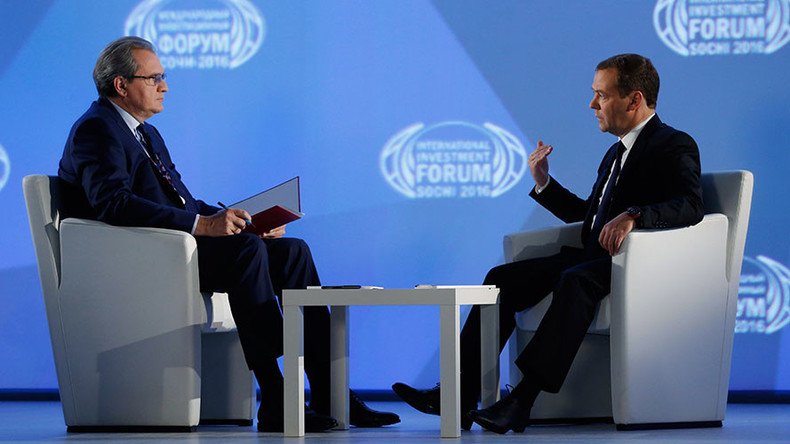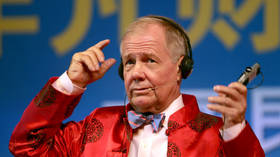PM Medvedev pledges to stay on conservative course to protect Russian living standards

The Russian PM and leader of the parliamentary majority party United Russia told reporters that the parliament and government would prioritize responsibility and predictability in all their actions so that rapid change does not hurt the average citizen.
“In the current situation, all changes and transformations must be directly dependent from the living standard and the social feeling of ordinary citizens. In other words, we are going to maintain a reasonably conservative course,” Dmitry Medvedev said in an interview with Channel One television.
He also promised that the government would continue to execute the ‘May orders’ – the set of major guidelines defining the general course of Russia’s development, signed by President Vladimir Putin in May 2012. In particular, he pledged to implement “a number of consolidation measures” that would allow an increase in budget allocations to the social sector, such as state-sponsored mortgages.
READ MORE: Half of Putin’s 218 principal orders fulfilled - government
Medvedev also said that in the nearest future, the Central Bank of Russia would drop the key rate to allow commercial banks to reduce mortgage credit rates for consumers.
He also criticized the existing system of state management, saying that it retained too many traits from the Soviet and post-Soviet periods of Russian history with its obsolete communication systems and the huge amount of required paper documents that cause any interactions with state agencies to last for months or even years.
“Modern electronic systems of interaction allow us to solve bureaucratic tasks in just hours,” he said.
Medvedev acknowledged the negative effects of foreign economic sanctions on the Russian economy, in particular the lack of access to foreign customers and capital markets, but emphasized that they were not the main problems. He said that the major structural deformations of the entire national economic system were much more threatening. He noted, however, that rapid changes in the economy were simply impossible as the Soviet economy was built in 50 or 60 years and many of its sectors, such as heavy industry, the defense industry and the oil and gas sector, remained the main sources of export revenues for the country as a whole.
READ MORE: Failure to execute presidential orders should be criminal offense – leftist MP
The Russian PM said that the government expected the negative trends in the economy over the past two or three years to diminish, and that the economy will start growing by the beginning of next year.
“We have low state debt and it is important for the nation to feel comfortable. We have considerable gold and foreign currency reserves, comparable to those of the first ten countries in the world. Inflation has decreased and maybe by the end of this decade we will have the lowest inflation in the history of modern Russia, which will give us hope for further economic development,” Medvedev concluded.












